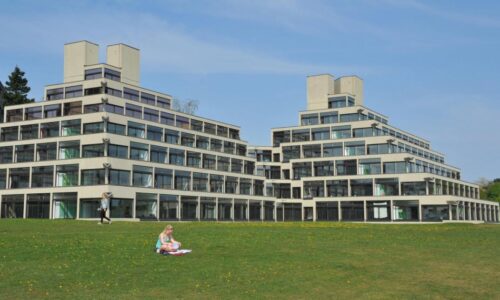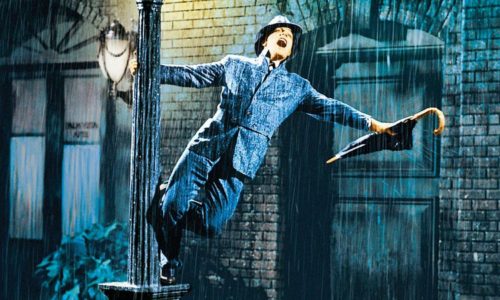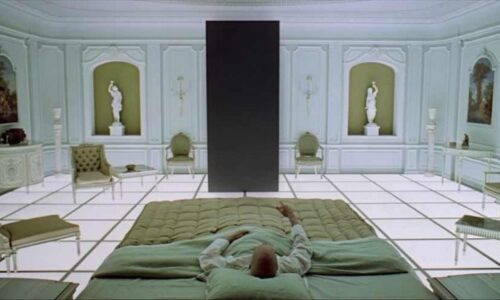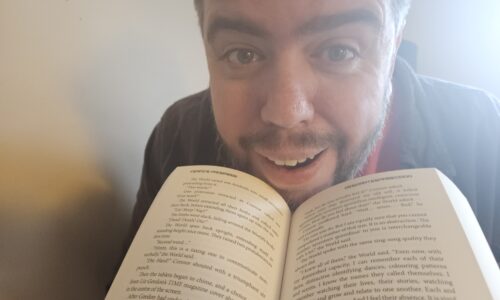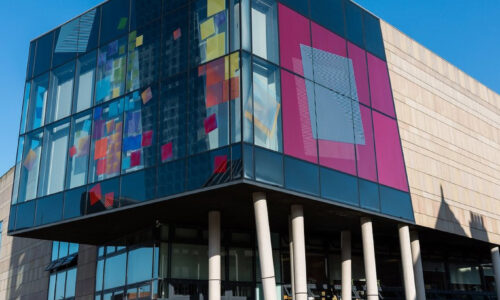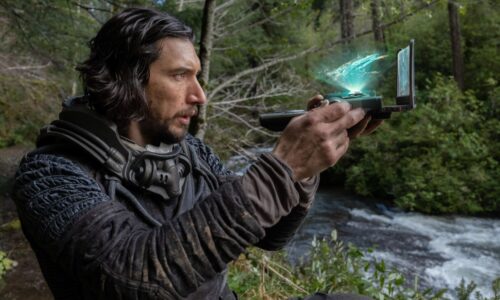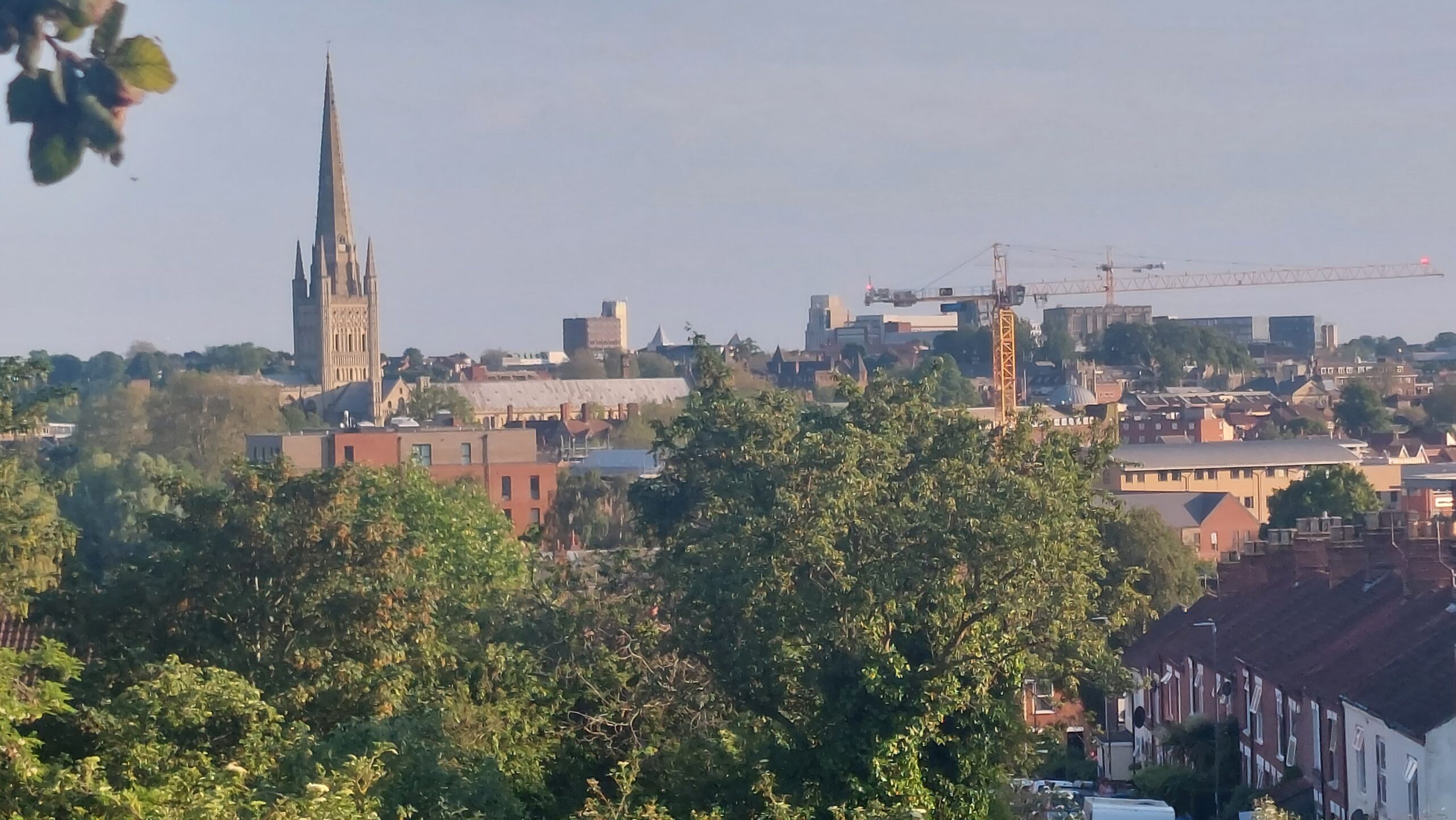
The Future History of Norwich – a Fan Fiction, Part 1
- Uncategorized
- June 15, 2023
This is a Star Trek fan fiction about a place that will never appear in Star Trek.
It is 2024 in Norwich. The pavements are lined with parked cars, mostly petrol but a couple of electric are starting to show up. Some houses have solar panels on the roof. There are ranks of app-powered electric scooters on street corners. People at home sit in front of tellies showing the latest prestige dramas while looking at their phones. Occasionally, a rider from an app delivery service will pass by.
On September 3rd, 2024, Police in the USA shoot a black man during a riot at one of the Sanctuary Districts. This event so shocks the world that centuries later it will be heralded as kickstarting widespread social reforms.
In Norwich, about a dozen students and members of the local Green and Labour parties gathered outside Norwich City Hall with placards and banners to hold a vigil.
That same year we watched the street parties as Irish Reunification was declared. In Norwich there are a few impromptu celebrations, and a few impromptu fights. Guinness sells well and a few fireworks are set off.
Everyone has lots of strong opinions on Twitter (which everyone still calls Twitter) and its various clones.
Among less-trending topics, the politically angry corner of the web is angry about some think tank pushing ideas of eugenics. Very sensible people argue that the very angry political people are overreacting. They argue that we need to follow the science, not our emotional response to it, although the scientists arguing why eugenics and genetic manipulation are unethical and flawed strangely aren’t the ones getting invited on TV.
In Norwich there are some heated discussions over it in the pubs. Some people still remember the mortality rates from only a few years previously, and which groups were hit hardest.
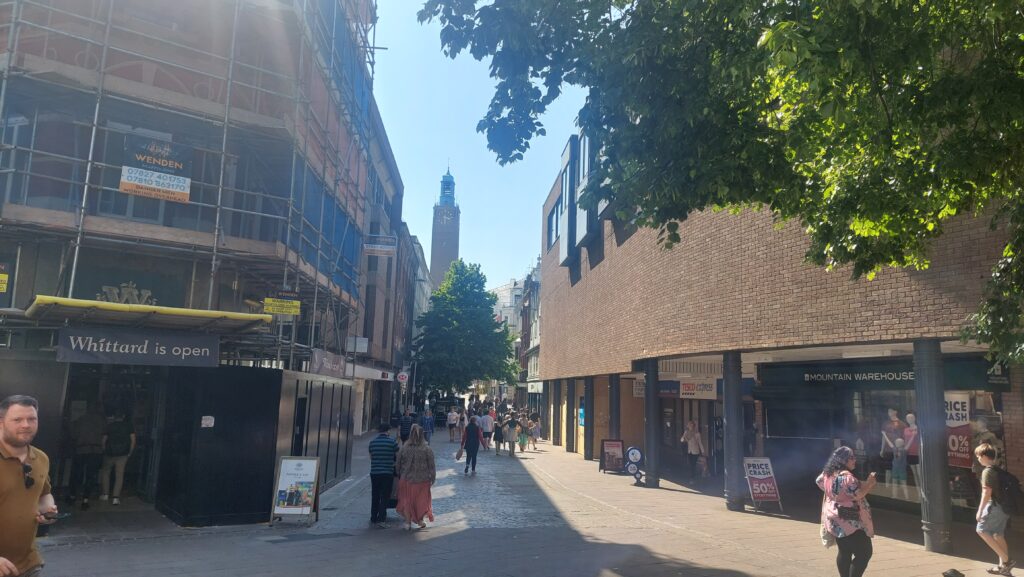
It is 2026 in Norwich
The pavements are lined with parked cars, more of them are electric now, but not enough. Some houses have air conditioning units bolted onto the side. People at home sit in front of tellies showing explosions in foreign cities, using their phones to say how terrible it all is.
The world is at war. It seems every country has a dog in the fight, but for most it is still a spectator sport. Bombs and drones are landing in proxy countries, killing proxy civilians. The footage is horrifying, and even better in quality than the last war.
There are protests outside the city hall again, but not big ones. People are more concerned about the rapidly diminishing pool of gig work, the rising price of food, and the increasingly dramatic cycle of floods and draughts on the Broads.
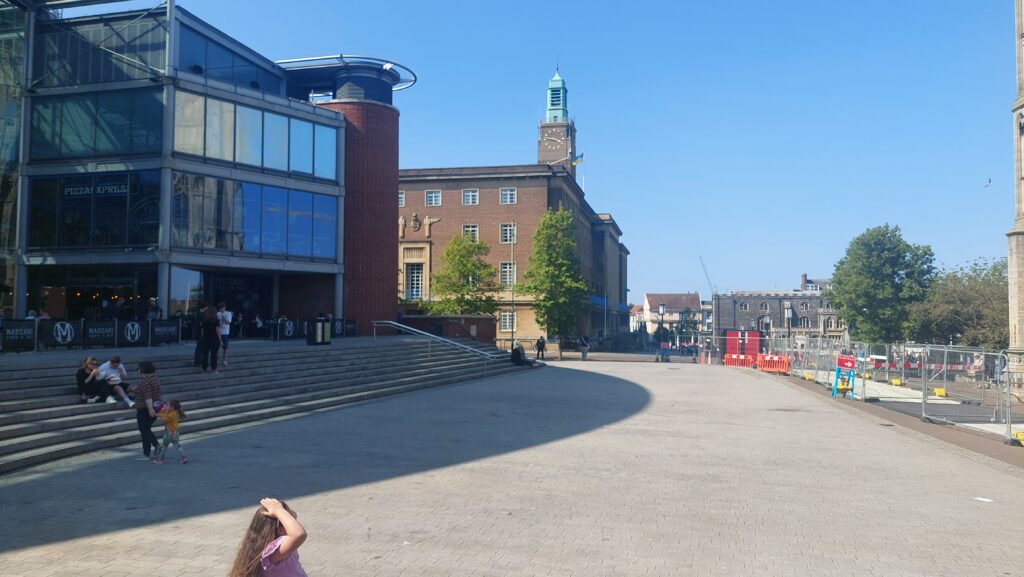
It is 2037 in Norwich
Most of the cars on the pavement are electric, but there are not as many of them now. Some houses have charging points outside, others have cables snaking out of their living room windows. Generally, you can’t afford to charge your car unless it’s for a special occasion anyway. Occasionally, a battery-powered US Army jeep will rumble past.
The old US army bases from the last world war are active again. In Norwich it seems like young Americans in uniform are everywhere. At first this is an outrage, then a novelty, then a part of the furniture.
But the war remains a spectator sport. We watch it between livestreams of the first manned Mars missions, and they’re even launched the first manned mission beyond the solar system.
Kids have grown up to go to war and join the patrols their daddies had walked when they were babies. When their kids have grown up to join the war, that mission might have reached its destination.
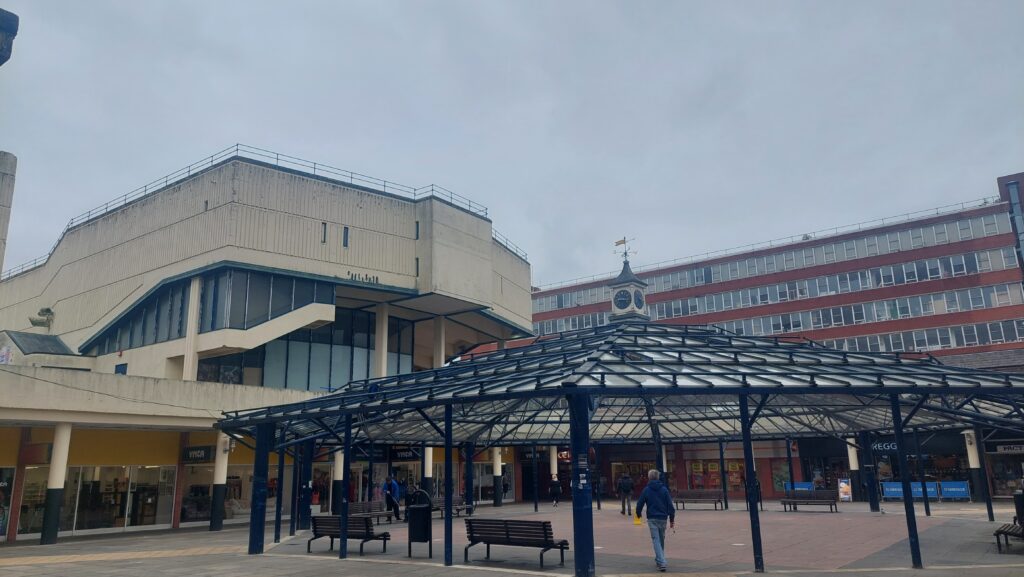
It is 2053 in Norwich
The cars on the pavement are covered in a fine layer of grey dust. Over the rooftops you can just about make out strange clouds. Some car alarms have gone off, but it still feels quiet now that the siren has stopped.
Social media is down. Grandparents complain they can’t get Twitter, while the younger generation struggle to connect to their far richer, deeper and more confusing platforms. Nobody even checks to see if the last TV channels are still broadcasting, but they aren’t.
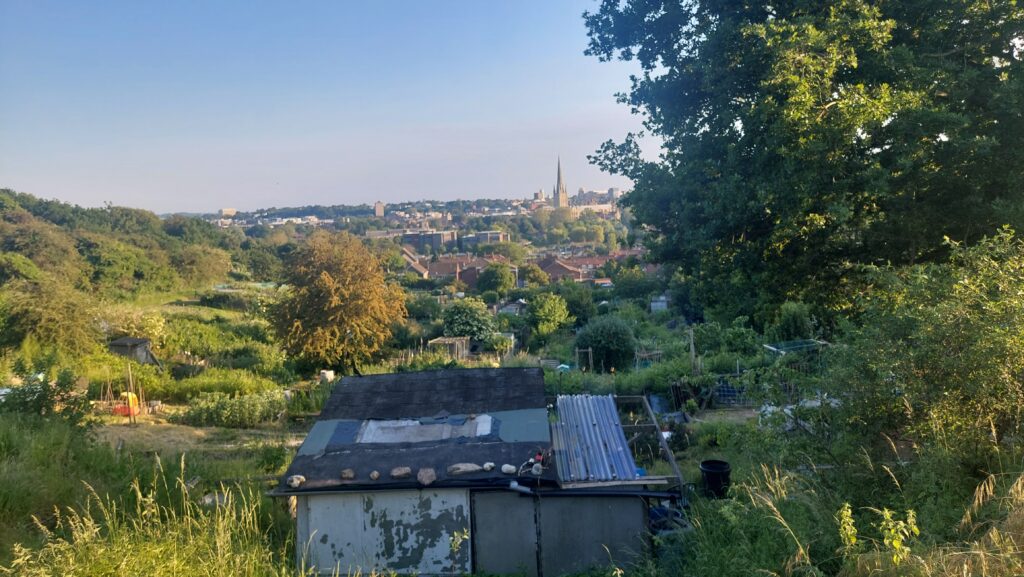
Norwich has always been a city you go to or from, never through, but over the next few days and weeks people stop going to it altogether, and people who leave don’t come back.
Disease, cold weather and starvation kill a lot of people in those next couple of years.
In the city allotments and back gardens become lifelines. Desperate people band together for survival, taking care of the sick and the vulnerable, looking after their communities in ways more coddled generations used to romanticise.
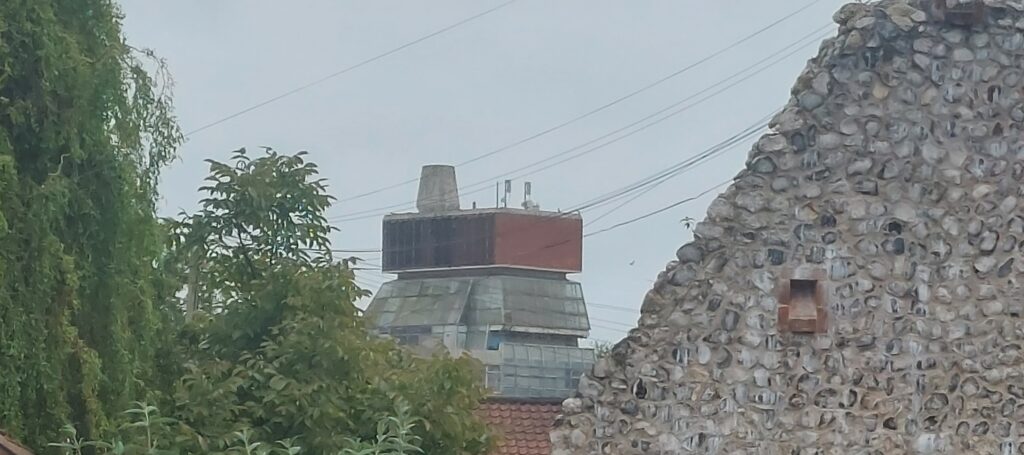
It is 2063 in Norwich
The cars on the pavement have been stripped down for parts, to build water purifies and generators and who knows what else. The chassis themselves have been hauled away and used to rebuild the old city walls, to keep out the roving gangs operating from those old army bases.
Most of the houses are empty, but if you could look behind the houses you would see rows upon rows of vegetables. People have learned agriculture fast, but the plants are small and sickly and the work is hard. There are not many old people. There are not many children.
The biggest farming operations are at Norwich castle, on its roof and surrounding grounds, where a small community has come together. They and other survivor groups meet at the old “Forum” library every month, for trade, city-wide votes on how to manage resources, and sometimes, community theatre productions from the artist’s collective on Duke Street.
The city is starting to receive messengers come from Great Yarmouth, Wymondham, Diss. Sometimes, very rarely, people will even travel through Norwich, trying to find their way to the Norfolk coast, and maybe Europe. They bring stories. Communities rebuilding. The last vestiges of old world governments trying to re-establish a world nobody remembers.
Some of the stories are just ridiculous.
There are people talking about aliens.
They say that in America (obviously- it’s always America) somebody (some people are saying it’s Elon Musk but he must be dead now, surely?) built a spaceship.
It’s not a unique or even terribly original rumour- anyone digging stunted vegetables out of the toxic dirt can feel the planet dying, and plenty of churches and utopians and enclaves of government have tried to coax the old space programmes back to life in the hope of escape.
But this story says not only that someone succeeded, but that it attracted attention from beyond the stars.
Some say the visitors look like elves from an old Dungeons & Dragons game. Others say they look like demons.
Everyone has a good laugh about it and gets back to tending their allotments.
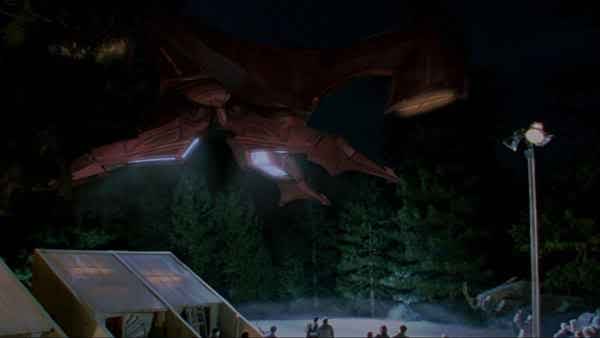
It is 2065 in Norwich
The streets are crowded with people clad in hand-me-downs and rags and old N65 masks. They are looking up, over the rooftops, and the lights in the sky.
At first people think it’s an aeroplane – nobody’s seen a real aeroplane for a long time. But when the passengers step out of the plane, they’re alien, although in a dark room you could mistake them for human. They say they want to help. They came because Norwich is, to our horror, one of the biggest and most populated cities on this island. They set up clinics and help build irrigation systems and repair the old water treatment facilities.
There’s no magical laser beam to make everything right. The aliens tell us they are forbidden to use advanced technology, or even to bring us the resources that would alleviate our suffering. But they show us how to use what we already have, to the gratitude of some and the resentment of others.
Most of all, it’s embarrassing. It turns out we didn’t need benevolent saviours to come down from the sky and solve all our problems. We just had to want to solve them ourselves.
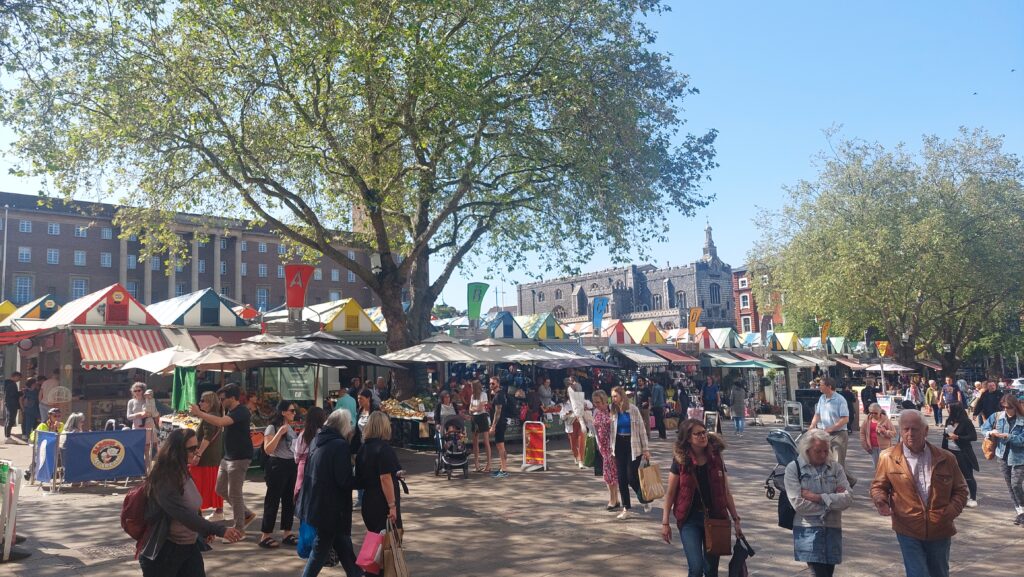
It is 2075 in Norwich
There are no cars anymore, but bikes are plentiful. Houses are fitted with their own solar panels and water purifiers, and over the rooftops you can see the tower hydroponic gardens that are feeding a population that suddenly includes an awful lot of children. A school has opened again.
“Of course, we have it lucky,” is the common refrain across the city.
Satellites are functioning and radios are operable again, and the news that comes through shows the world is still a horrendous and scary place. Not just because of the aftermath of the Atomic Horror, but as usual, because of the people who just want to make everything worse.
Still, here there are meetings that look a bit like rule of law. The rule of share-and-share-alike that has been essential for survival for twenty years is extending to nearby settlements, and distant settlements. A world economy begins to re-emerge, one completely unlike that which burned in the war.
Once upon a time it would have been a taboo to declare Universal Basic Income, the infrastructure held in common ownership, the careful distribution of resources, but by now we have been living that way for most of our lives. All that’s changed is that there is more to share.
Older people will say it is this, not pointy-eared men from Venus who will save us in the end. People speak darkly about the way the planet’s best and brightest are being siphoned away to worlds with shiner futures. But at night children still look to the stars…

Chris Farnell is the author of the Star Trek Lower Decks U.S.S. Cerritos Crew Handbook, which is available for pre-order now. He lives in Norwich.
He is also the author of Fermi’s Progress, a novel about an FTL ship that vaporises every planet it encounters, but Norwich’s future is much shorter in that one. It is for sale now at Amazon and Scarlet Ferret
